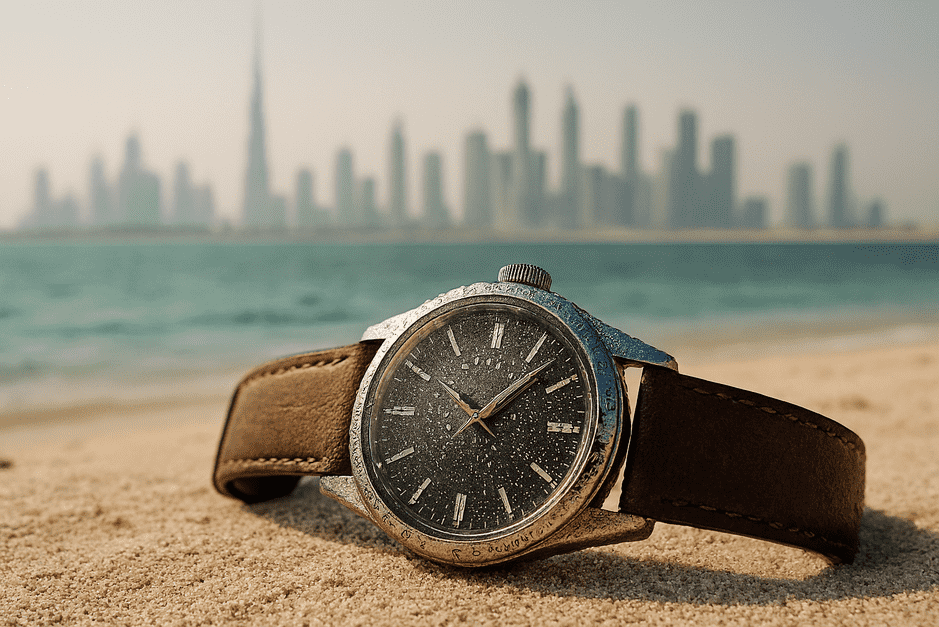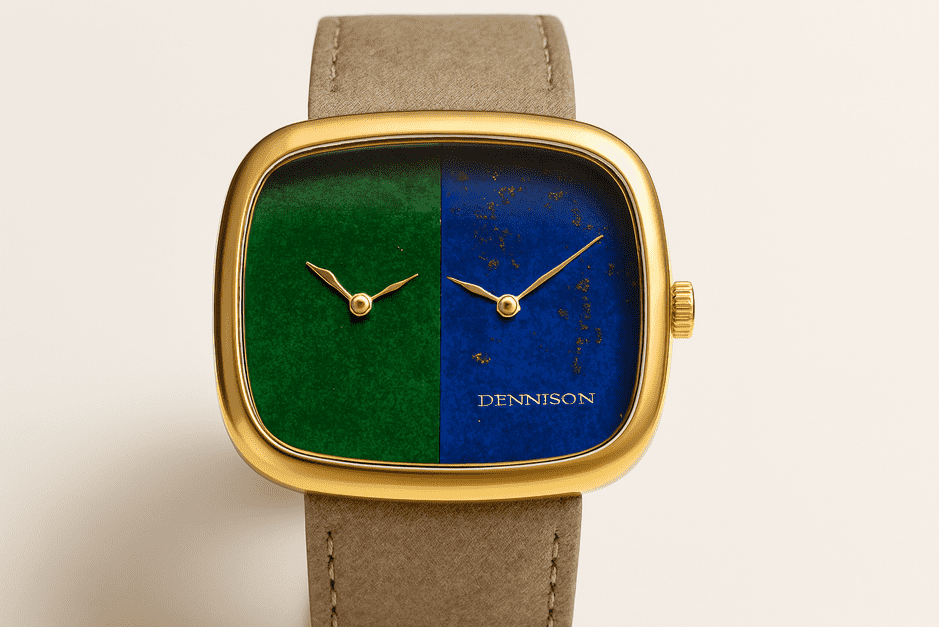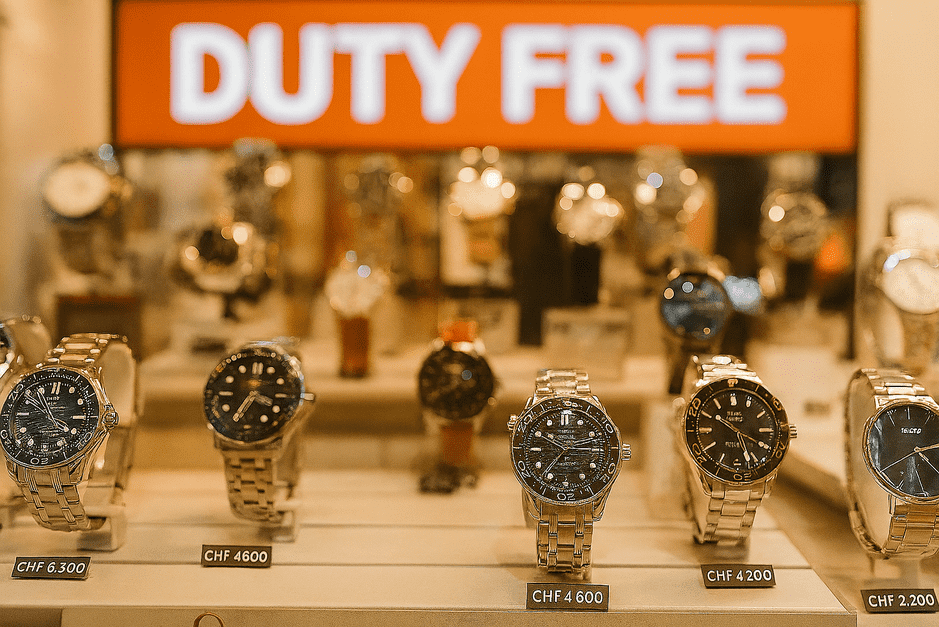Summary
Dubai’s heat and humidity can silently damage Swiss watches. Learn why condensation, failing gaskets, and heat harm your timepiece — and practical ways to protect it.
Introduction
Indeed, if you own a Swiss watch in Dubai, you may have noticed foggy crystals or stopped hands after one Gulf summer. Rather, the culprit isn’t poor craftsmanship — it’s Swiss watch humidity in Dubai. Therefore, understanding how Dubai’s climate affects your watch helps you prevent damage and keep your timepiece in top condition.
Dubai’s Climate: A Threat to Swiss Watches
Summers in Dubai often exceed 45°C, and humidity spikes near the coast. Meanwhile, moving from air-conditioned malls to outdoor heat causes condensation inside your watch.
For example, even luxury brands like Rolex, Omega, or Patek Philippe can suffer corrosion.
According to the Watch Club Dubai, over 30% of summer watch repairs relate to moisture — a reminder that Swiss watch humidity in Dubai is real.
Additionally, for related tips, see How to Avoid Diamond Mistakes in Dubai.
Water Resistance Ratings: What They Really Mean
However, many assume a “50m water resistance” protects against Dubai humidity.
It doesn’t.
- 30m – Splash resistant only
- 50m – Handles sweat or light rain
- 100m – Suitable for humid conditions
- 200m+ – Ideal for Gulf summers
Remember, lab tests don’t account for daily heat shifts, sweat, and condensation cycles.
Therefore, over time, even a water-resistant watch can fail in Dubai.
Gaskets: Your Watch’s First Line of Defense
Rubber gaskets seal crowns, case backs, and pushers.
Meanwhile, Dubai’s heat expands them; AC cooling contracts them.
Consequently, this stretch-and-shrink cycle cracks gaskets, letting humidity sneak in.
For instance, even a few drops of sweat can fog your watch crystal.
The WatchTime magazine recommends annual water-resistance checks and gasket replacement.
Why Luxury Doesn’t Always Mean Durable
In contrast, slim dress watches prioritize elegance over toughness.
Thin cases, sapphire edges, and decorative pushers make them vulnerable to humidity.
Instead, sports watches — Rolex Submariner, Omega Seamaster, or Tissot Seastar — handle Swiss watch humidity in Dubai far better.
Additionally, see Smart Watch Buying in Geneva for travel tips.
Practical Steps to Protect Your Swiss Watch in Dubai
- Pressure-test annually before summer.
- Replace gaskets every 18–24 months.
- Avoid thermal shock — don’t jump into cold pools with a hot watch.
- Wear a diver’s watch daily, save dress pieces for evenings.
- Service every 2–3 years, not 5.
Therefore, these small steps keep your Swiss watch safe from Dubai humidity.
FAQs
1. Why does my Swiss watch fog in Dubai?
Because temperature changes cause condensation inside the watch.
2. Can I wear a 50m water-resistant watch in Dubai?
No. Choose 100m or 200m+ models for Gulf conditions.
3. How often should I replace gaskets?
Every 18–24 months to prevent moisture damage.
4. Which watches survive Dubai humidity best?
Generally, steel sports and diver’s watches from Rolex, Omega, or Tissot.
5. Can humidity reduce resale value?
Yes, corrosion or dial damage lowers your watch’s value.



